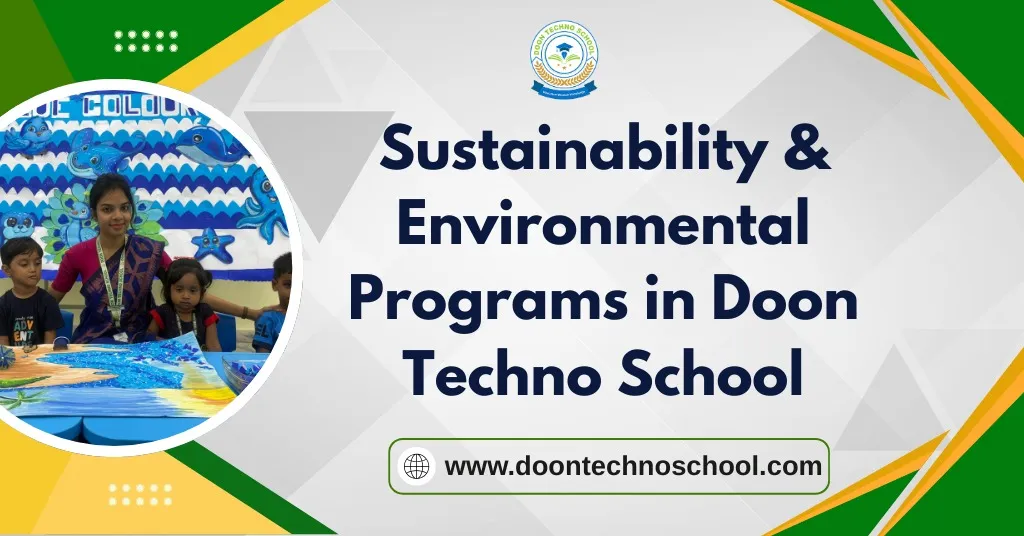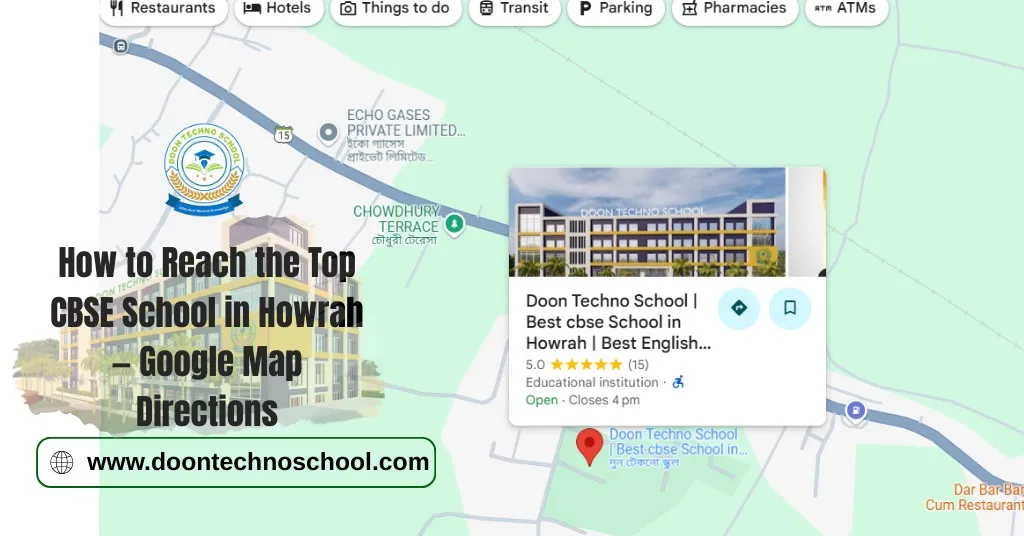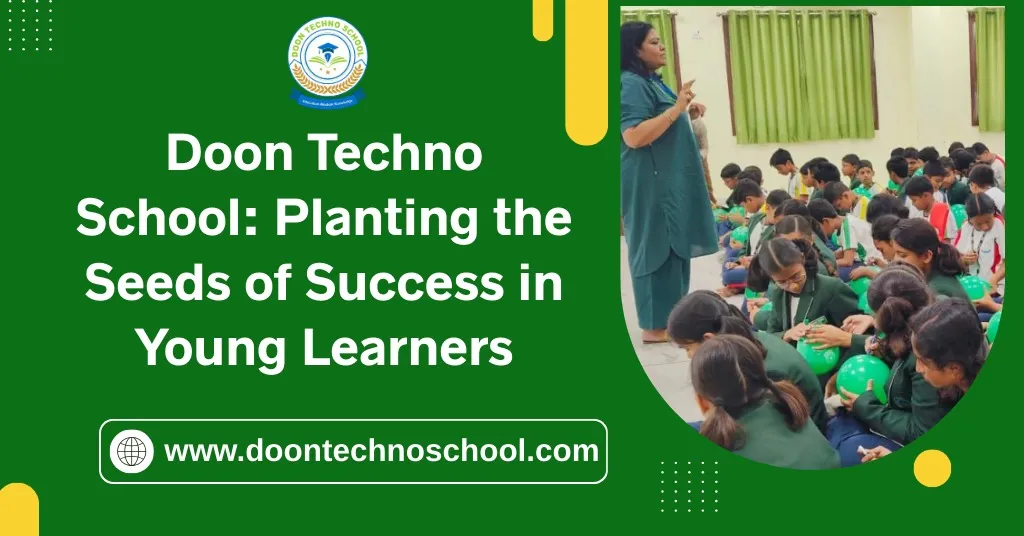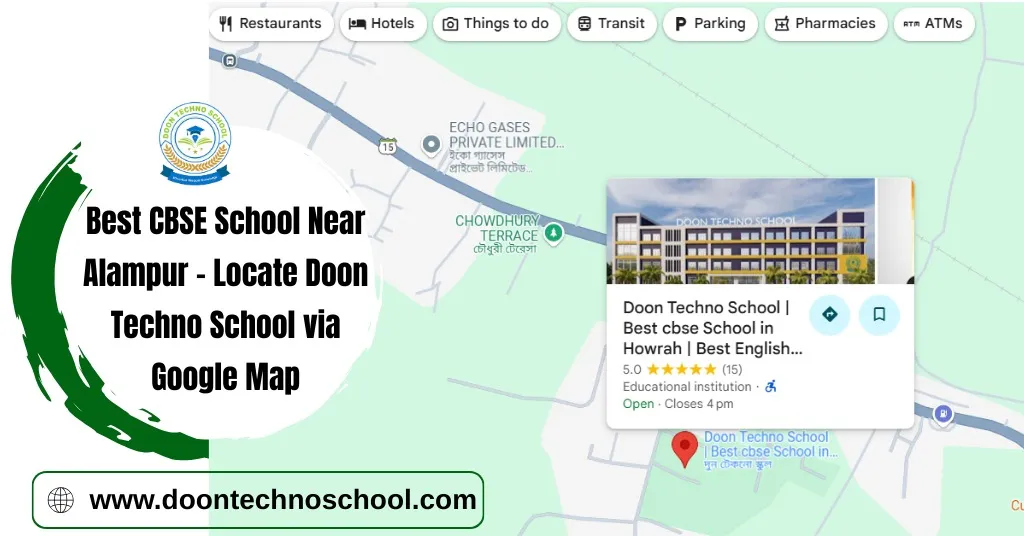
Weather and climate change are becoming more extreme in every seasons. We all see the major changes in weather and the effects of global warming upon us. We all know that coastal areas are disappearing day by day, uninhabitable lands, mass extinction, earthquakes, floods and many harmful diseases are taking place.
As a responsible citizen of our country, we need to take some major steps. Keeping our environment safe is a great task for us. Schools teaches students about sustainability and environmental programs. Our best CBSE school in Howrah is increasingly embracing eco-friendly initiatives and incorporating environmental programs into our curriculum. Through this, our school students could handle global challenges.
Why sustainability education matters in Doon Techno School?
Our school teachers feel that this generation and also the next generation students should know about the sustainability and environmental awareness. They should know about the basic concept of deforestation, global warming, and excessive use of natural resources. Our school tries to create awareness in children by –
- Developing empathy for nature
- Learn how to use resources efficiently
- Understand the impact of their choices
- Students must adopt some practice like recycling, composting and energy saving
Green infrastructure in our school
Unlike other schools, our school is trying to redesign the campus to become more eco-friendly. Doon Techno School is trying to adopt sustainable architecture, installing renewable energy systems and creating green spaces.
Some of the common green infrastructure initiatives includes –
- Rainwater harvesting – Through rainwater harvesting, students of our best CBSE school in Howrah learn about innovative harvesting system, which ensures water conservation and ground water recharge.
- Solar power systems – Our school is using solar panels to meet their energy needs and reduce dependency on non-renewable resources.
- Green classrooms – These classrooms are naturally ventilated classrooms that helps to save electricity.
- Waste segregation - Separate bins for biodegradable, non-biodegradable, and e-waste encourage responsible disposal.
- Herbal and organic gardens - Many schools maintain small organic farms or herbal gardens, where students actively participate in cultivation.
By learning in eco-friendly spaces, students absorb the values of sustainability in their daily routine.
Curriculum integration of environmental studies
Our school has made environmental education (EVS) as a main subject of the curriculum. Not only EVS in its main subject, but environmental concepts are woven into science, social studies and geography.
For example:
- Students conduct audits of energy consumption within the school.
- They organize surveys on waste management practices at home and in society.
- Schools conduct eco-clubs and green projects to encourage teamwork in solving environmental challenges.
This hands-on learning approach makes sustainability more practical and impactful.
Eco clubs and students’ initiatives
One of the most effective ways CBSE schools promote environmental awareness is through Eco-Clubs. These student-driven clubs create a sense of ownership and responsibility among learners.
Activities include:
- Tree Plantation Drives: Regular plantation programs both inside and outside the campus.
- Cleanliness Drives: Students participate in "SwachhataAbhiyan" campaigns, keeping their surroundings clean.
- Plastic-Free Campaigns: Schools encourage cloth bags, steel water bottles, and banning single-use plastics.
- Green Competitions: Poster-making, debates, quizzes, and model-making competitions on sustainability topics.
- Awareness Campaigns: Street plays, rallies, and presentations to spread awareness in local communities.
These initiatives empower students to be changemakers, extending sustainability beyond classrooms.
Technology for environmental learning
Doon Techno School also leverage technology to educate students about the environment. Smart classes, interactive digital boards, and simulation tools make learning about climate change, ecosystems, and resource management more engaging.
Additionally, many schools use digital platforms to reduce paper usage by encouraging e-homework, online assessments, and e-newsletters. This not only saves trees but also teaches children about eco-friendly alternatives to traditional practices.
Outcomes for environmental programs in CBSE school
- Greater environmental awareness among students.
- Responsible lifestyle choices like reducing waste, saving electricity, and using eco-friendly products.
- Development of leadership and teamwork skills through green initiatives.
- Contribution to society by influencing family and community practices.
- Increased innovation, as students design eco-friendly models and projects.
Conclusion
Sustainability and environmental education are not just optional activities in top CBSE schools—they are central to nurturing responsible global citizens. By integrating eco-friendly infrastructure, curriculum-based learning, eco-clubs, technology, and community participation, these schools are creating an ecosystem where students live and breathe sustainability.Admission in CBSE school in Howrah is open for sessions 2025-2026. For CBSE school admission in Howrah, visit our school premises today






